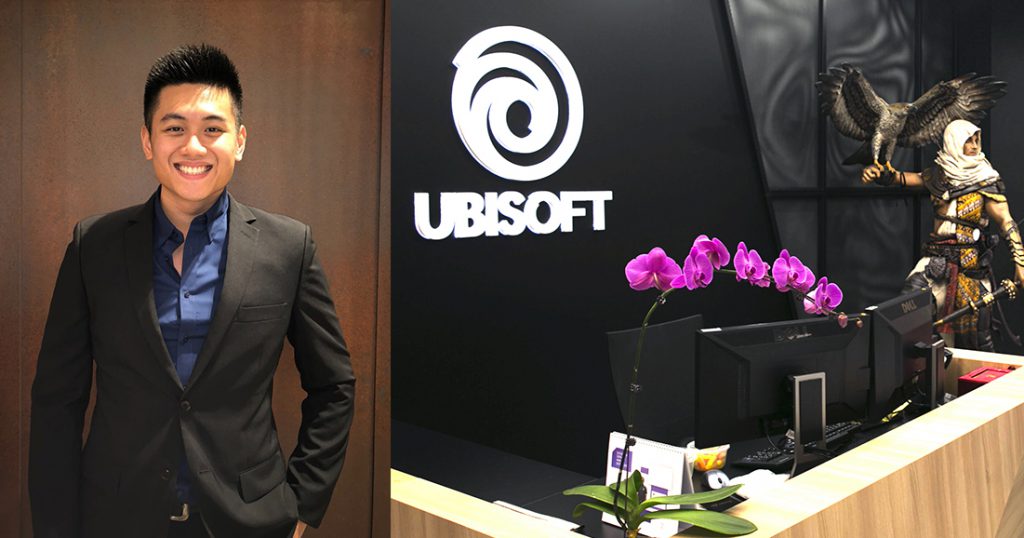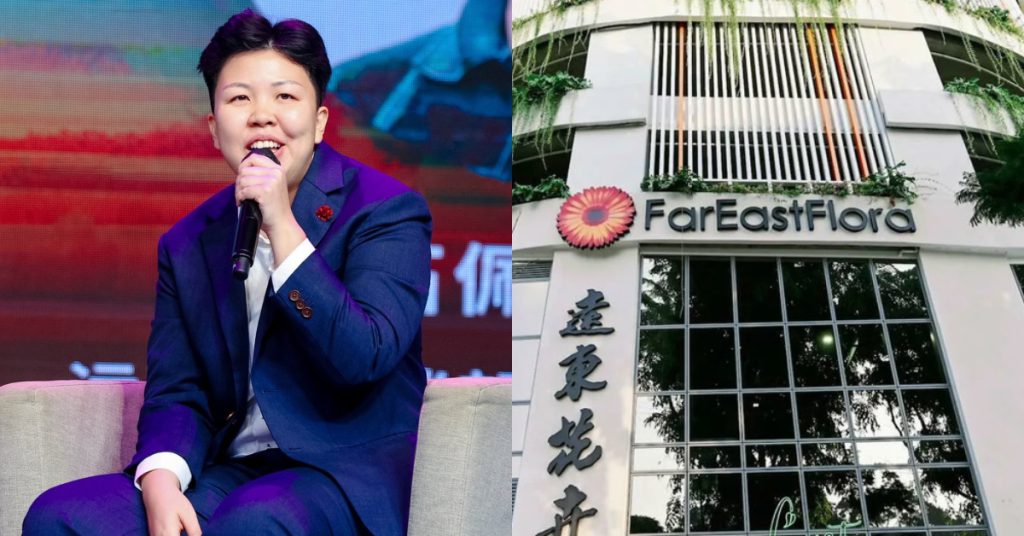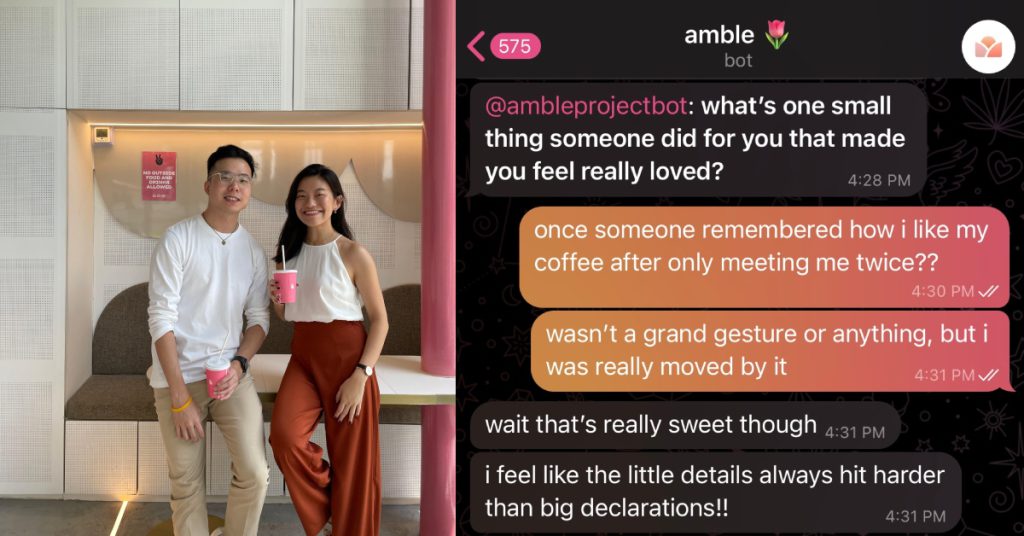Just like many of us, Tan Tian Shou (25) is a Singaporean millennial whose childhood and teenage years were filled with games like Maplestory, Pokemon Red/Blue, and Digimon World 2.
These games also served as inspiration for the ‘games’ he created when he was in Primary 2 and 3.
“I would try to sketch out characters in the coolest armour I [saw], and then narrate the story to my friends on what’s going on! Thinking back, it was like a simpler version of Dungeons and Dragons.”
In spite of this, being a game designer wasn’t something he saw as a potential career.
As the son of parents who sold Yong Tau Foo at Ayer Rajah Food Centre, Tian Shou shared with me that in Secondary School, he initially wanted to follow in their footsteps and become a hawker too.
“[This idea] was quickly shut down by my parents.”
The effort and time spent by a hawker wasn’t justified by the returns. The additional physical strain of waking early and standing for hours upon end in front of a hot stove was their ‘deal breaker’.
However, the silver lining was that this hurdle actually made him “want to focus and find out [his] own dream” even more.
Returning To A Childhood Dream, And Convincing His Parents
Still an avid gamer then, Tian Shou’s childhood ‘dream job’ of becoming a game designer starting creeping back into his mind as he indulged in the hobby.
While he had dabbled in creating “random gimmicks like self-made D&D” as a teen, Tian Shou shared that he only started to take game development seriously after starting on the Multimedia & Animation course at Ngee Ann Polytechnic.
It was then that he realised how flawed his idea of a game designer’s job scope was.
“Before that, my idea of a game designer was just a guy that sits there and thinks of lots of ideas,” he laughed. “I never knew I was so wrong!”
But despite this steep learning curve, my passion for game design and development didn’t die. In fact, I loved it even more.
Filled with unbridled enthusiasm, Tian Shou started putting his newly-acquired skills to use by creating whatever game ideas came to mind.
“My first game was actually a running poop that has to dodge toilet paper and clean water. Most of the time I actually didn’t know what I was doing but I knew I was having fun,” he reminisced.

He admitted, however, that his parents were initially skeptical about his decision to pursue game designing and development as a career.
Coming from a very traditional family, gaming has always been looked at as an ‘unhealthy’ hobby.
“This was also partly due to my own negligence in studies during my early secondary school years,” he shared. “As I was always at the bottom few ranks of the class, it really made them worried.”
“This may sound very cliché, but it was after I realised that I needed to work hard to […] be a game designer that I started to work hard in my studies.”
“Slowly but surely, my results provided my parents the assurance that they desired, and they slowly accepted my choice.”
Earning A Scholarship From Ubisoft And IMDA After Being Rejected 4 Times
Currently, Tian Shou is studying at DigiPen Singapore and his studies are sponsored by gaming giant Ubisoft and the Infocomm Media Development Authority of Singapore (IMDA).
As a quick background, he was awarded under the former Media Education Scholarship scheme (MES; which has been combined with the National Infocomm Scholarship and iPOLY scholarship under a single brand – the Singapore Digital (SG:D) Scholarship).
The SG:D Scholarship aims to develop the next generation of Infocomm Media leaders to power Singapore’s push to become a leading digital economy.

Ubisoft, which opened its Singapore office in 2008, is a co-sponsor of the Scholarship programme, alongside other co-sponsors like Singapore Press Holdings and Mediacorp Pte Ltd.
The publisher of popular games like the Assassin’s Creed and Far Cry series, I asked Tian Shou how he managed to grab the attention of Ubisoft and eventually, IMDA.
I believe what impressed them the most was my perseverance and [the fact that] I, quite shamelessly, went to seek this opportunity myself!
He actually applied for the scholarship 4 times before he finally clinched it – once right after graduating from Polytechnic, twice after National Service, and once for the former MES scholarship (now known as the SG:D Scholarship), even placing Ubisoft as his only preferred company.
“Being someone that doesn’t understand how to give up, […] I worked harder, as I knew all these setbacks are just a reason to strive for higher standards.”
The fifth time was the charm for Tian Shou, and he got called in for an interview by IMDA and finally clinched the scholarship.
“I was actually overwhelmed [when I heard the news]. Now, I am still trying to grasp [the fact] that it’s really happening.”
“I am obviously very happy but […] this happiness doesn’t come easy and isn’t mine alone. Many have helped me through this journey, providing me with assistance, advice, and guidance.”
The Scholarship comes with a bond to a company of his choice post-graduation, and Tian Shou shared with me that he’s actually most excited about the potential networking opportunities with like-minded professionals, and eventually, chances to help undergraduates like himself.
On Game Dev In S’pore: “It Is Seen More As An ‘Unconstructive Hobby Than A Job”
Ending off the interview, I asked Tian Shou what he wishes Singaporeans would understand more about video games and game development.
“I hope they would understand the hard work that goes into game development. Many people I’ve met have little to no understanding of the game industry and the processes in it.”
[Game development] is often shunned as many feel that it is more of an ‘unconstructive’ hobby than a job.
He also wishes that fellow game developers be more aware of the various roles involved in the industry.
“There are level designers, quest designers, technical artists, engine architects, producers, HR and many more that require distinct expertise. I wish that fellow budding game developers could explore these different fields and find out where their talent and passion truly lies.”
I’d like to thank Tian Shou for his time!










